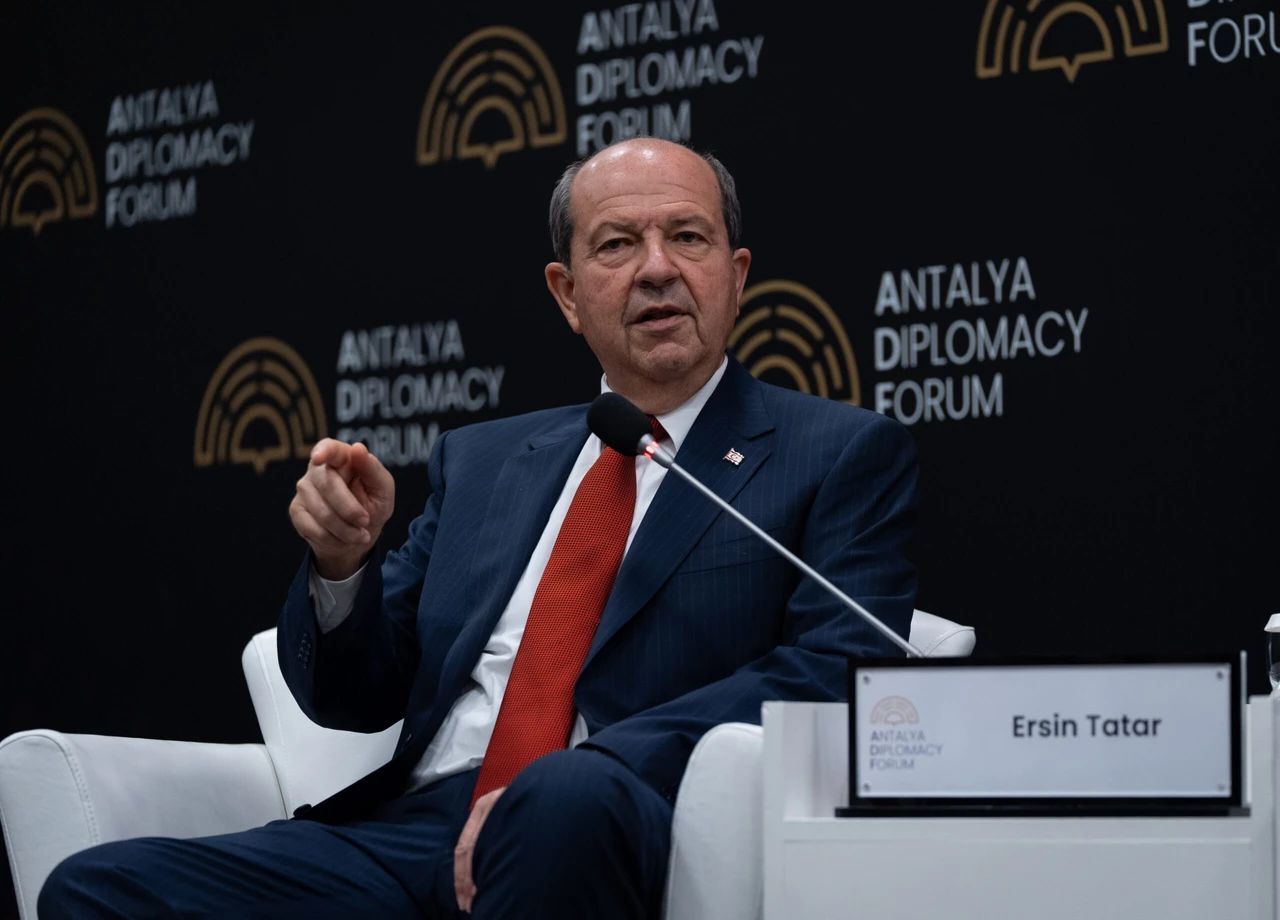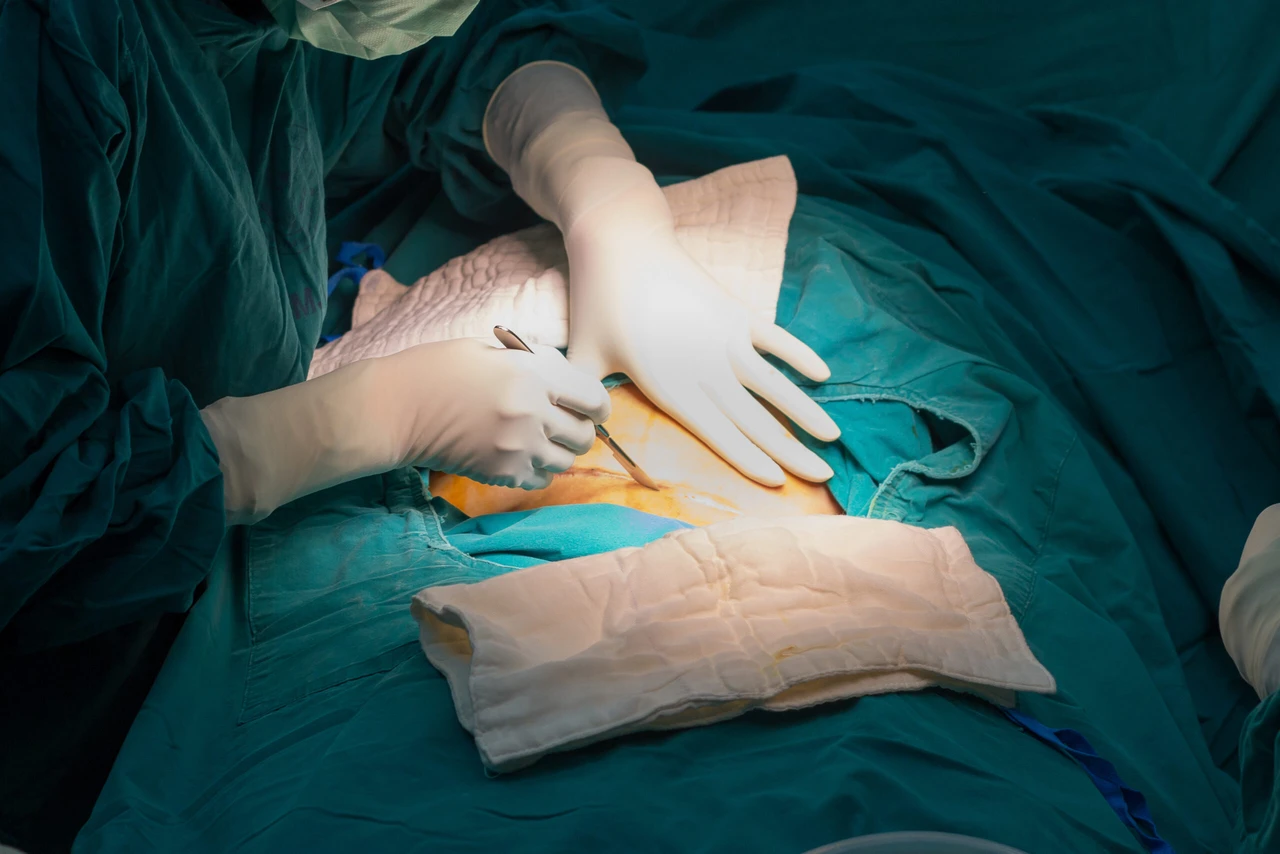Spain’s Indra reportedly partners with Turkish Otokar to boost armored vehicle production
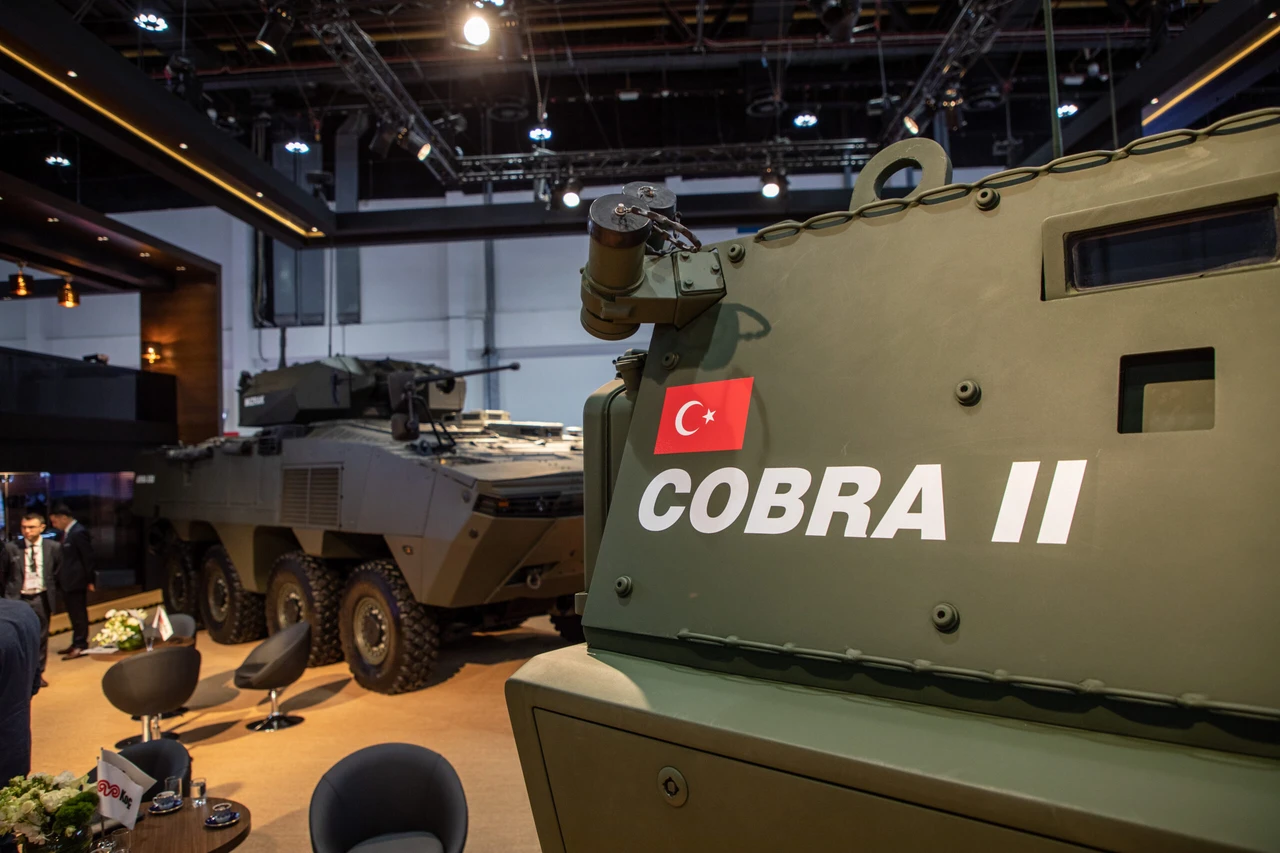 COBRA II 4x4 armoured tactical vehicle designed and produced by Turkish company Otokar, at the 16th edition of International Defence Exhibition and Conference (IDEX) and the 7th edition of the Naval Defence and Maritime Security Exhibition (Navdex) in Abu Dhabi, United Arab Emirates, February 21 2023 (AA Photo)
COBRA II 4x4 armoured tactical vehicle designed and produced by Turkish company Otokar, at the 16th edition of International Defence Exhibition and Conference (IDEX) and the 7th edition of the Naval Defence and Maritime Security Exhibition (Navdex) in Abu Dhabi, United Arab Emirates, February 21 2023 (AA Photo)
The reported partnership between Spanish defense technology company Indra and Turkish defense manufacturer Otokar is expected to play a pivotal role in the development and production of armored vehicles in Asturias, Spain.
This collaboration is central to Indra’s efforts to acquire the necessary licenses and expertise to produce advanced military vehicles, crucial for Spain’s modernization of its armed forces.
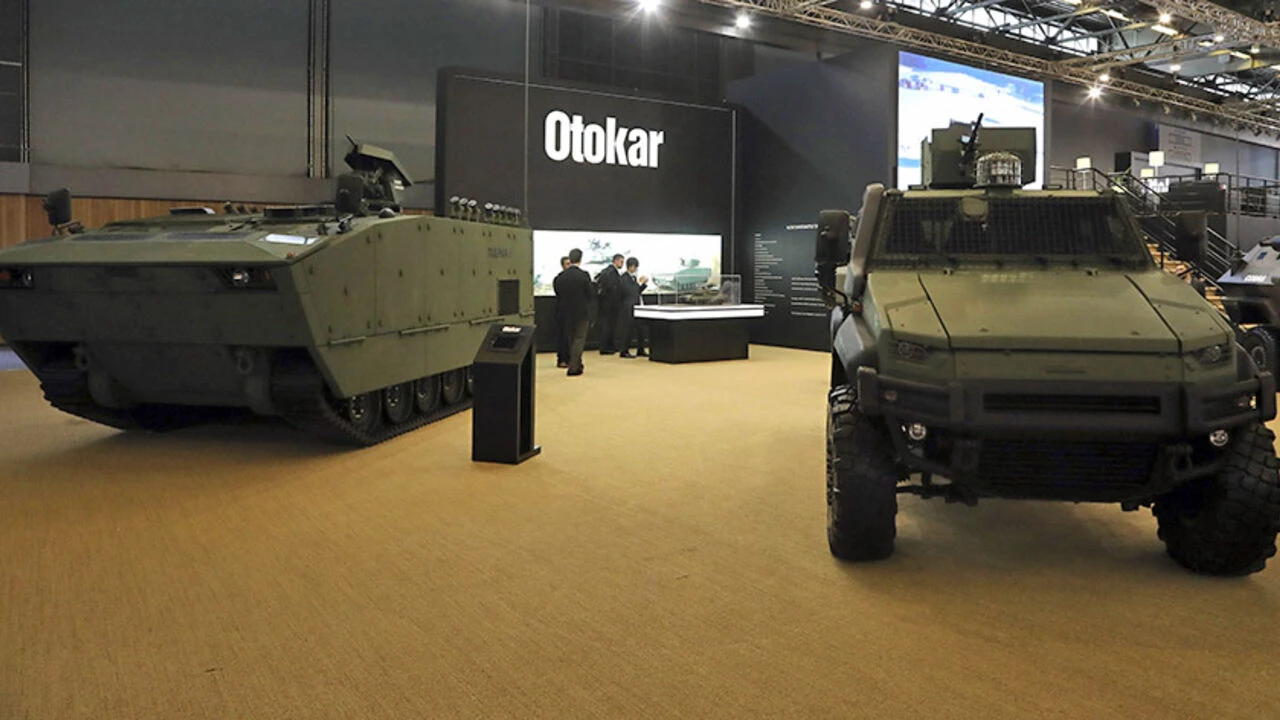
Key role of Otokar in Indra’s expansion plans
Indra’s collaboration with Otokar, a well-established Turkish defense company specializing in armored vehicle design and manufacturing, provides the Spanish company with the licenses and technical know-how needed to fulfill Spain’s military vehicle requirements.
Otokar, known for its ARMA series armored vehicle, has a strong presence in Europe and recently secured a contract with Estonia to deliver 230 units of the ARMA 6×6.
By teaming up with Otokar, Indra can leverage the Turkish company’s extensive experience in armored vehicle manufacturing, which is essential for fulfilling Spain’s ambitious plans to replace its aging military equipment.
This collaboration is seen as a strategic move to combine the strengths of both companies, with Otokar providing the required patents and technical capabilities for the production of these vehicles.
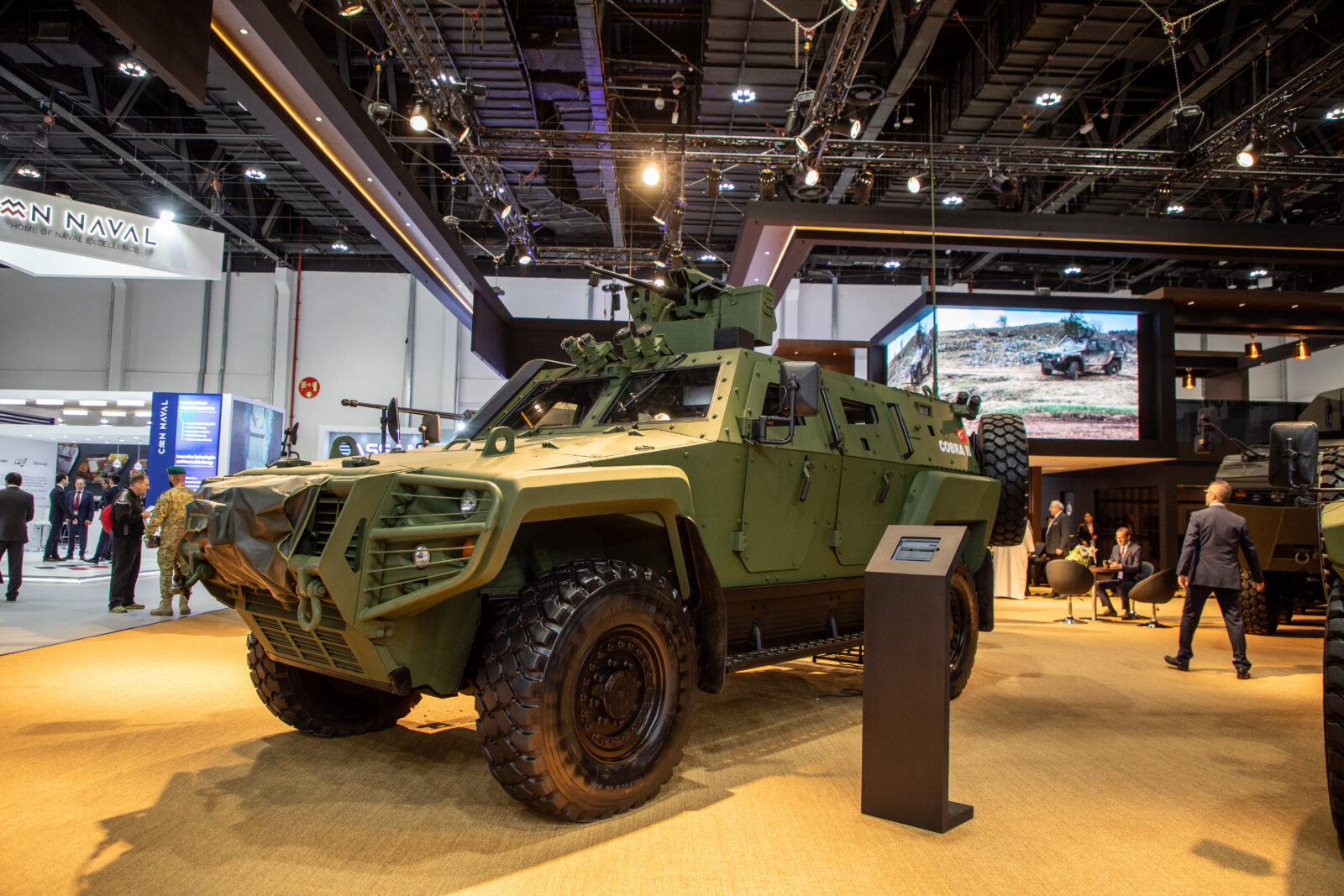
Why the partnership with Otokar is critical for Indra?
Indra has faced challenges in obtaining the necessary patents and development expertise to build advanced armored vehicles. While competitors such as Santa Bárbara Systems hold the patents for such vehicles, Otokar’s technology and design capabilities offer Indra the opportunity to enter the market and meet the needs of the Spanish Ministry of Defense.
“(*The partnership with Otokar) lays the foundations for exploring new opportunities for collaboration in land systems,” said Angel Escribano, president of Indra.
This alliance will enable Indra to secure the necessary technological support to manufacture a new generation of armored vehicles at its new facility in Asturias.

Turkish expertise to bolster Spanish defense capabilities
The collaboration between Indra and Otokar highlights the growing importance of international partnerships in the defense sector.
With Otokar’s proven track record in armored vehicle production, the partnership is expected to bolster Spain’s defense capabilities and contribute to the strengthening of European defense networks.
Otokar’s experience with tracked and wheeled vehicles, including the Tulpar tracked vehicle, is particularly relevant to the needs of the Spanish Army.
The strategic alliance with Otokar reflects the increasing trend of defense companies forming cross-border collaborations to pool resources and expertise.
For Otokar, the agreement with Indra also represents an opportunity to expand its footprint in the European defense market, as well as to enhance its influence in the production of advanced military systems.

Implications for local manufacturing in Asturias
As Indra works toward securing the necessary licenses and technological capabilities for armored vehicle production in Asturias, the collaboration with Otokar is expected to play a key role in the development of the region’s defense manufacturing capabilities.
This partnership aligns with the Spanish Ministry of Defense’s long-term plans to modernize its military and localize the production of essential defense equipment.
The cooperation with Otokar is particularly important in ensuring that Spain can meet its defense objectives, with the added benefit of bolstering regional industry and creating new manufacturing jobs in Asturias.
Spain’s plan to replace F-5 fleet with Türkiye’s TAI Hurjet
On Dec. 20, 2024 Türkiye and Spain officially signed a memorandum of understanding (MoU) for cooperation on the Hurjet Trainer Aircraft project.
The agreement came after the Spanish Air Force’s detailed evaluation of the Hurjet earlier 2024. In July, 2024 a Hurjet prototype landed at Torrejon Air Base near Madrid, marking its first visit to a foreign air force.
According to defense analysts, Spain plans to replace its aging fleet of F-5 aircraft with 24 Hurjets. Hurjet, developed by Turkish Aerospace Industries (TAI), is designed to modernize the training fleet of the Turkish Air Force and has garnered interest from other nations, including Azerbaijan and Canada.
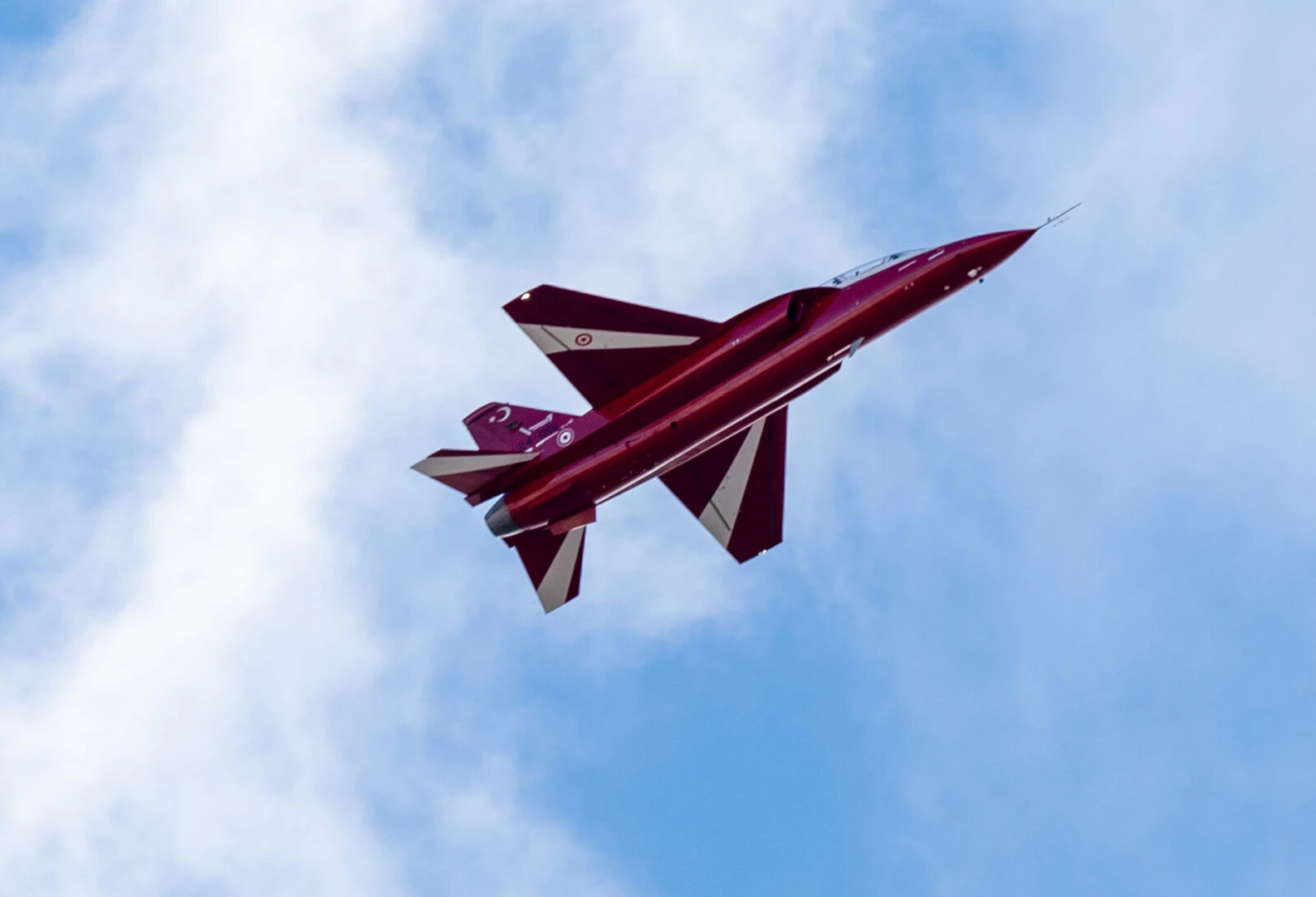
Hurjet, a twin-seat, single-engine supersonic new-generation jet trainer and light attack aircraft, began development on July 2, 2018, under an agreement between TAI, the Turkish Defense Industries Presidency, and the Turkish Air Force.
Initial studies for the “Jet Trainer Aircraft & Light Attack Aircraft Project” commenced in July 2017, with the project officially starting on Aug. 14, 2017.
The goal of the Hurjet project is to develop a supersonic domestic jet trainer to replace the T-38M and NF-5A/B 2000 aircraft in the Turkish Air Force inventory by the 2030s.
Additionally, Hurjet aims to alleviate the load on the F-16C/D aircraft by taking on close air support roles. TAI also plans to develop a naval version of Hurjet for aircraft carrier operations.

